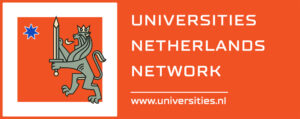Leiden, a historic city in the Netherlands, has long been recognized as a hub of intellectual and cultural significance, largely due to Leiden University, founded in 1575. As one of Europe’s oldest and most prestigious research universities, it has cultivated a legacy of producing influential leaders who shape European and global affairs. Recent news highlights Leiden’s continued role as an incubator for high-caliber professionals, particularly in European governance, diplomacy, and international organizations like NATO. This article explores Leiden’s unique contributions to leadership development, drawing on its academic excellence, interdisciplinary networks, and strategic location.
A Legacy of Leadership at Leiden University
Leiden University, with its motto Praesidium Libertatis (Bastion of Freedom), has been a beacon of academic freedom and intellectual rigor since its founding by William, Prince of Orange. The university’s seven faculties—spanning law, humanities, social sciences, and more—have educated numerous prominent figures, including three Dutch monarchs (Queen Juliana, Queen Beatrix, and King Willem-Alexander) and ten Dutch prime ministers, such as Mark Rutte, who transitioned from prime minister to NATO Secretary-General in 2024.
The university’s historical role in fostering intellectual tolerance during the Dutch Golden Age attracted scholars like René Descartes and Hugo Grotius, laying the groundwork for its reputation as a breeding ground for critical thinkers. Today, Leiden continues to draw talent from across Europe and beyond, with over 33,000 students and a diverse faculty contributing to its vibrant academic community.
Recent articles underscore Leiden’s influence in shaping European leadership, particularly through its alumni’s prominence in international organizations. For instance, L’Express highlighted that Leiden University has produced three NATO secretaries-general, a testament to its ability to prepare graduates for high-stakes global roles. The university’s emphasis on interdisciplinary education, combining law, international relations, and governance, equips students with the skills needed to navigate complex geopolitical landscapes.
Academic Excellence and Interdisciplinary Networks
Leiden’s role as an incubator for leaders is rooted in its academic programs and research institutes, which address pressing European and global challenges. The Europa Institute, for example, focuses on European Union law and human rights, conducting research on issues like the Eurozone crisis, migration, and the EU’s internal market. This work informs policy and prepares students for roles in European governance. The newly established Europe Hub further amplifies this impact by showcasing interdisciplinary expertise on societal and governance challenges, such as climate change, AI regulation, and the preservation of democracy.
Leiden’s Faculty of Governance and Global Affairs, located in The Hague, is particularly noteworthy. The Hague, a global hub for international law and diplomacy, hosts institutions like the International Court of Justice and Eurojust, providing students with unparalleled access to real-world policy environments. Programs in international relations and European studies attract students who later assume leadership roles in EU institutions and national governments.
The university’s global outlook is enhanced by strategic partnerships, such as its alliance with Delft University of Technology and Erasmus University Rotterdam, which fosters collaborative research and innovation. Additionally, initiatives like LeidenGlobal connect scholars and practitioners to address global issues, from conflict resolution to cultural heritage, further preparing students for leadership in diverse fields.
Leiden’s Broader Ecosystem: Innovation and Global Impact
Beyond academia, Leiden’s ecosystem supports leadership development through innovation and public-private partnerships. The Leiden Bio Science Park, the largest biomedical incubator in the Netherlands, exemplifies this by fostering collaboration between academia, startups, and industry leaders. Housing over 215 organizations, it drives advancements in health and technology, nurturing entrepreneurial leaders who contribute to Europe’s innovation landscape.
The launch of Key Region Leiden in July 2025 further strengthens the city’s role as a hub for impactful conferences and innovation. This partnership, involving seven municipalities, three knowledge institutions, and leading innovation clusters, positions Leiden as a center for addressing societal challenges like health and security. Such initiatives create opportunities for emerging leaders to engage with global issues, reinforcing Leiden’s status as a launchpad for European talent.
Events like EU TalentOn, hosted in Leiden in 2022, also highlight the city’s commitment to nurturing young leaders. This biennial science event challenges early-career researchers to develop solutions for global issues, fostering skills in innovation and collaboration. By connecting young talent with industry and academia, Leiden cultivates a pipeline of leaders equipped to tackle Europe’s most pressing challenges.
Challenges and Opportunities
Despite its strengths, Leiden University faces challenges that could impact its role as a leadership incubator. Recent budget cuts and proposed restrictions on English-language teaching threaten the humanities, with programs like African and Latin American studies at risk of consolidation. These changes could reduce the diversity of expertise that has historically made Leiden a magnet for future leaders. However, the university’s proactive response, including restructuring efforts and new research grants, demonstrates its resilience.
Leiden’s historical ties to colonialism and slavery, recently acknowledged through university research, also add complexity to its legacy. Studies have revealed the university’s past connections to colonial networks, prompting calls for greater awareness and reconciliation. Addressing this history transparently strengthens Leiden’s credibility as a forward-thinking institution that prepares leaders to navigate ethical and societal challenges.
Leiden’s role as an incubator for European leaders is deeply rooted in its academic excellence, interdisciplinary networks, and innovative ecosystem. From producing NATO secretaries-general to fostering talent through initiatives like the Europe Hub and Leiden Bio Science Park, the city and its university continue to shape the continent’s future. As Leiden navigates financial and historical challenges, its commitment to intellectual freedom and global engagement ensures it remains a vital hub for cultivating leaders who will drive Europe forward.
